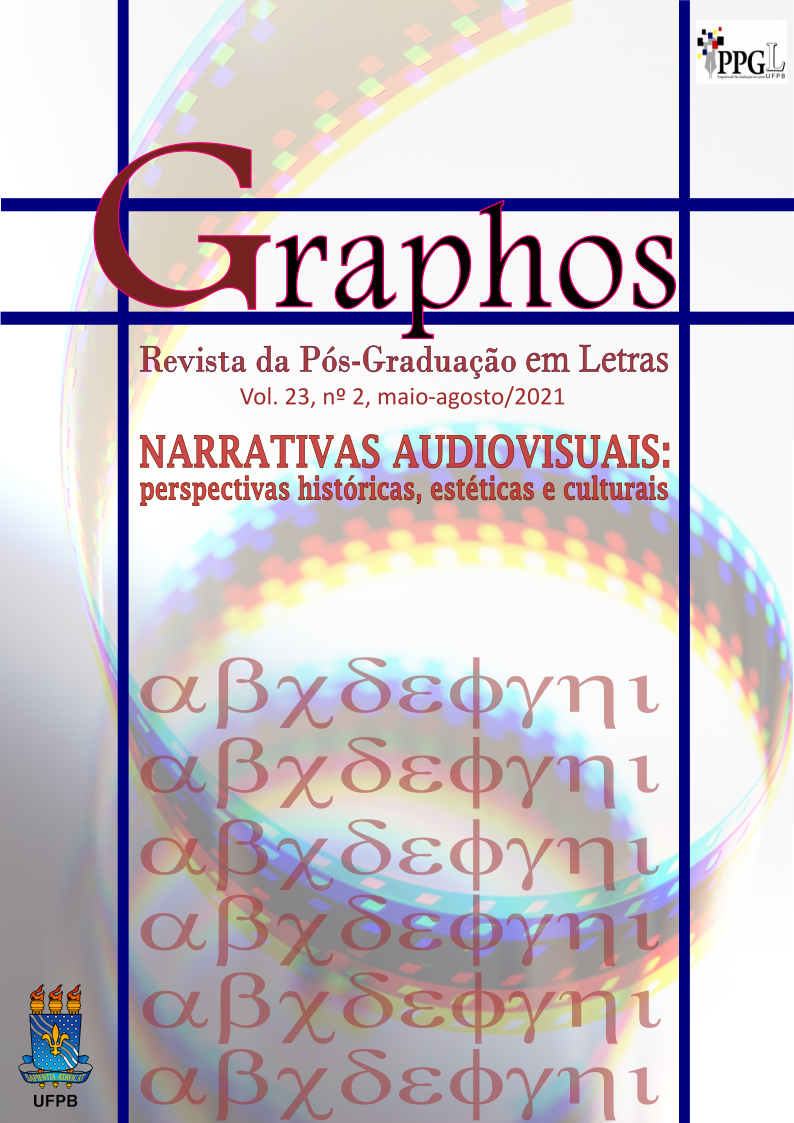Jean-Claude Bernardet and the aging of the intellectual: an allegorical reading of Fome (2015)
DOI:
https://doi.org/10.22478/ufpb.1516-1536.2021v23n2.56804Keywords:
Contemporary Film, Aging, Allegory, Jean-Claude Bernardet, IntellectualAbstract
At around 80 years of age, professor and critic J-C. Bernardet focused on acting in films marked by reflexivity, as well as the questioning of his previous path as an intellectual. This paper presents an allegorical reading (XAVIER, 2019) of the film Fome (2015), which is led by him. It is divided into two parts: firstly, it presents a contextualization of Cristiano Burlan's film, along with the general idea of aging films. These are made by long-lived filmmakers or actors in the early 21st century; are marked by modern echoes such as self-reflexivity and the construction of fragmentary memories; and put themselves as policies of the self and of aging in films. Secondly, it presents an allegorical analysis, which is centered on the relations between present and past, or in the interfaces between Bernardet, the intellectual and the character, as a homeless former teacher. As for the singularities of Fome, dialogues with the proper fragmentation of modern allegory are suggested, centered on the critique of the relations between intellectual and people, under the key of contesting popular national culture, but also, replacing the intellectual's ambiguities, through a game of tensions, which covers the filmic narrative, Bernardet's performance and the positionings in relation to the present.
Downloads
References
AUTOR, 2016.
AUERBACH, E. Mimesis. São Paulo: Perspectiva, 2015.
BAZIN, A. A evolução da linguagem cinematográfica. In: O cinema: ensaios. São Paulo: Brasiliense, 1991, p. 66-81.
BENJAMIN, W. Obras Escolhidas, Magia e Técnica, Arte e Política. São Paulo: Ed. Brasiliense, 1985.
______. Passagens. Belo Horizonte: UFMG; São Paulo: Imprensa Oficial do Estado, 2006.
BERNARDET, J-C. Tutaméia entrevista Jean-Claude Bernardet. [Entrevista de Bernardet ao programa Tutaméia em 09/09/2018]. Disponível em: https://www.youtube.com/watch?v=7vKso33b1IA. Acesso: 16 maio 2020.
______. O vôo dos anjos. São Paulo: Brasiliense, 1990.
______. Brasil em tempo de cinema. São Paulo: Cia das Letras, 2007. [1967]
______. Historiografia clássica do cinema brasileiro. São Paulo: Annablume, 1995.
______. O corpo crítico – por que me rebelei contra o sistema médico-hospitalar. Revista Piauí, ed. 154, julho 2019. Disponível em: https://piaui.folha.uol.com.br/materia/o-corpo-critico/ Acesso: 16 maio 2020.
_____. Trajetória crítica. São Paulo: Polis, 1978.
BURLAN, C. Sobre whisky e filmes. In: PINTO, I.; MARGARIDO, O. (Org.). Bernardet 80 anos. Jundiaí, SP: Paco, 2017, p. 133-144.
______. Cinema - Fome, de Cristiano Burlan [Entrevista de Burlan ao Canal Curta! exibido em 30/06/2016] Disponível em https://www.youtube.com/watch?v=wO5dDm6hPD4. Acesso: 22 maio 2020. BURGUER, P. Teoria da Vanguarda. Lisboa: Veja, 1993.
ELIAS, N. A Solidão dos Moribundos. Rio de Janeiro: Zahar Editor, 2001.
GAGNEBIN, J. M. A criança no limiar do labirinto. In: História e narração em W. Benjamin. São Paulo: Perspectiva, 1999, p. 73-92.
NAPOLITANO, M. Cultura brasileira: utopia e massificação (1950-1980). São Paulo: Contexto, 2001.
ODIN, R. Filme documentário: leitura documentarizante. Significação, vol. 39, n. 37, p. 10-30, 2012.
SARTRE, J. P. Em defesa dos intelectuais. São Paulo: Ática, 1994.
XAVIER, I. A alegoria histórica. In: RAMOS, F. Teoria Contemporânea do Cinema. vol. 1. São Paulo: Editora Senac, 2005, p. 339-379.
______. O cinema moderno segundo Pasolini. Revista de Italianística, vol. 1, n. 1, p. 101-109, 1993.
Downloads
Published
Issue
Section
License
Copyright (c) 2021 Fábio Uchôa, Margarida R Adamatti Adamatti

This work is licensed under a Creative Commons Attribution 4.0 International License.







